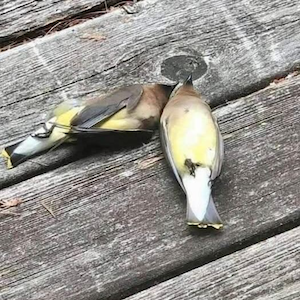|
Why is it that Two Birds can Experience MORE LOVE than many Humans?
by Anda Vitols Weaponizing Empathy into a Cloak of Shame Since as early as I can remember, I was brain-washed to feel shame of the empathy I had, and to instead strive for goals that had no meaning for me. I obediently tried my best, to avoid punishment, and to try to uncloak the shame put onto me by caregivers and community elders. Shame. That cloak of shame. Wherever there is light, it is a shadow dragging along the ground. There was no way to get rid of it. I was brainwashed. Now, I still am uncloaking that shame. Now, however, the world is dividing, and many, including myself, are realizing that society got it ass-backwards. Realizing that the power of love is what really matters, more and more of us are slowly able to dismantle that cloak-of shame, by being able to recognize how our empathy was weaponized against us. For myself, once I start to really see it, I cannot unsee it, and that “cloak of shame” has no use and simply disintegrates. Now, I feel like I'm in a new place, even though I am in familiar places. Now, I look at all those familiar places; those familiar sights and sounds and songs, and listen to them - again - for the first time as my true empathic self. It is a delight! I see so much more, yet it all fits together easily, because I am seeing things in natural order. Below: a quote and a beautiful story of birds of nature. The death of human empathy is one of the earliest and most telling signs of a culture about to fall into barbarism. - Hannah Arendt -
It’s a story that made me realize how deeply the bonds of life run — how even in the animal world, connection matters more than survival. In a society that teaches us to keep moving, to keep striving and competing, we often forget how essential that connection is. We measure success by what we accumulate, not by how deeply we love. But here, in this quiet moment between two small birds, was a truth that we, in our concrete jungles and busy lives, so easily forget: that love, in the end, is more important than anything else. And when it is gone, something inside us longs to go with it. Perhaps that’s what’s missing in our world — a willingness to let love guide us, to hold each other close even when the world says we must keep going. Nature doesn’t measure life in possessions or accolades. It measures it in the quiet, unwavering bonds we share. If we could learn from these birds—if we could remember what really matters — maybe we could start to heal the disconnection that so many of us feel, and find our way back to what is real. Journals Home |
